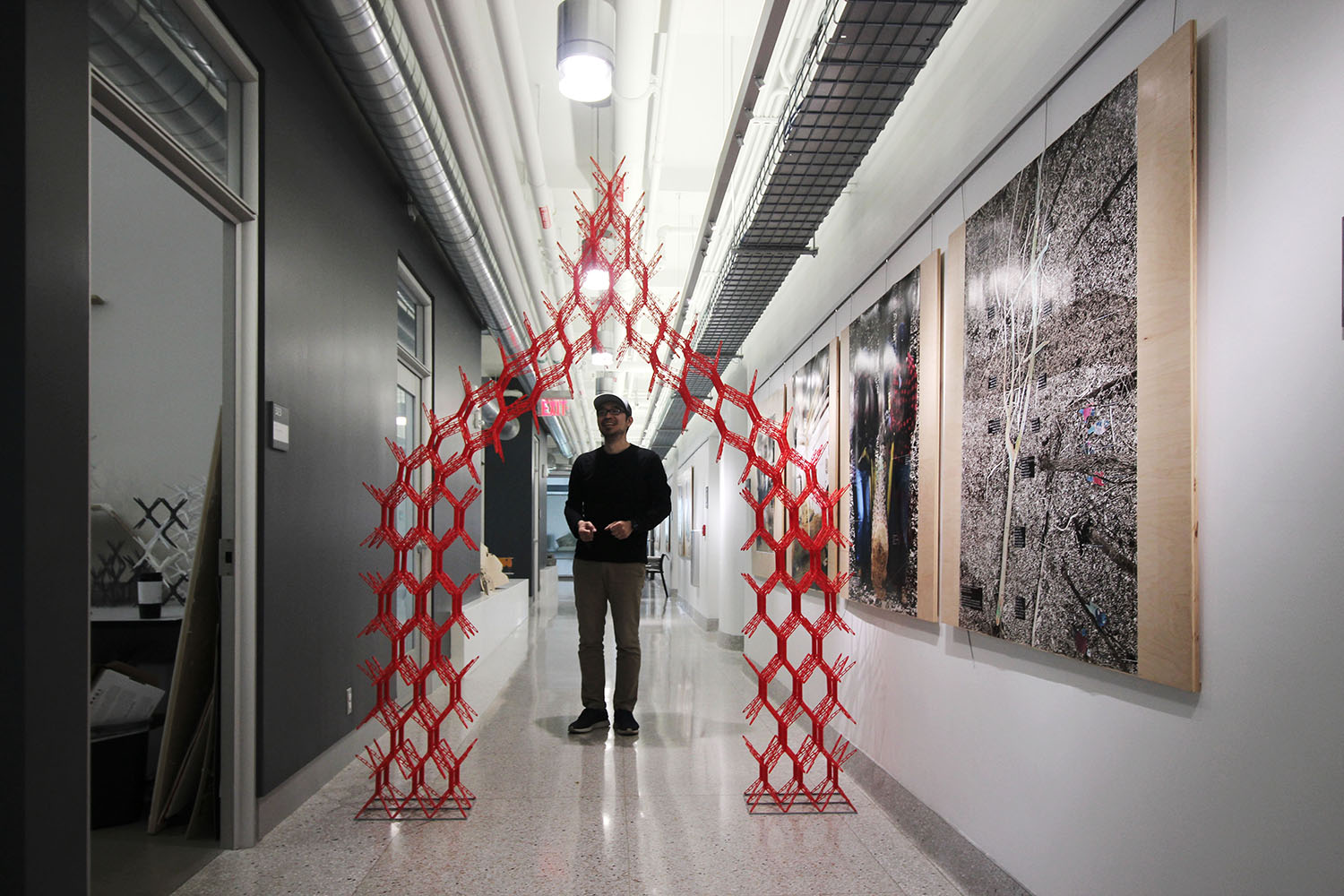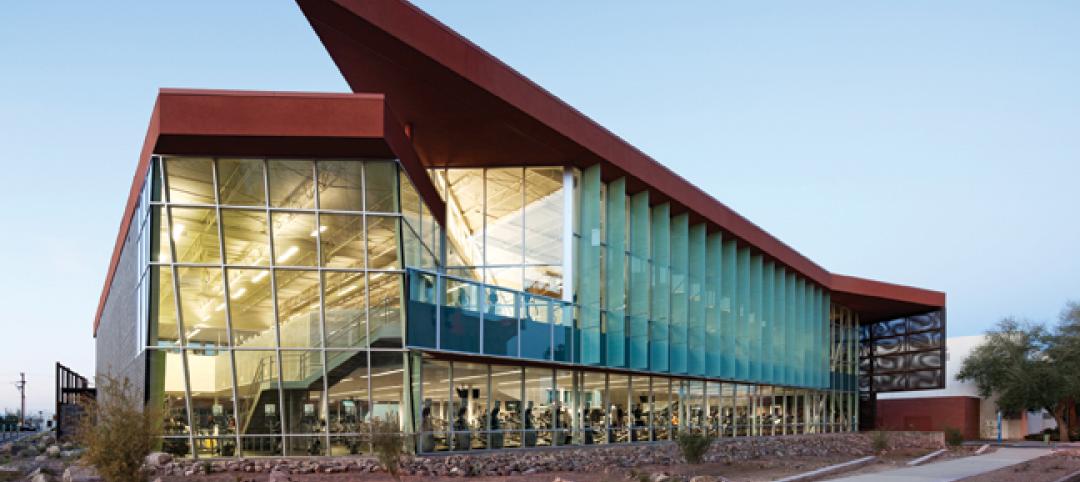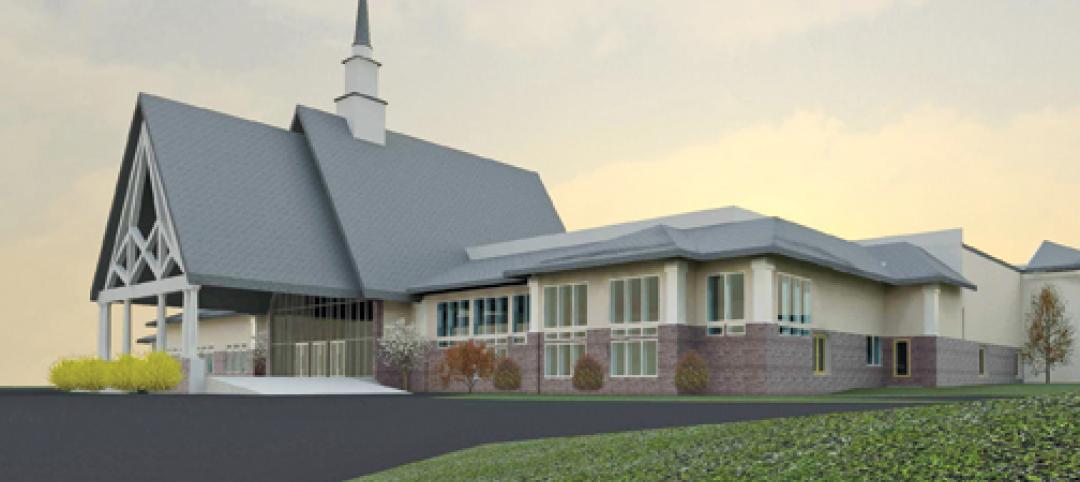Channel your inner Ludwig Mies van der Rohe or Philip Johnson by participating in The Forge Prize, an annual steel design competition that awards $20,000 to the architect who develops the most visionary design concept that embraces steel as the primary structural component to increase project speed.
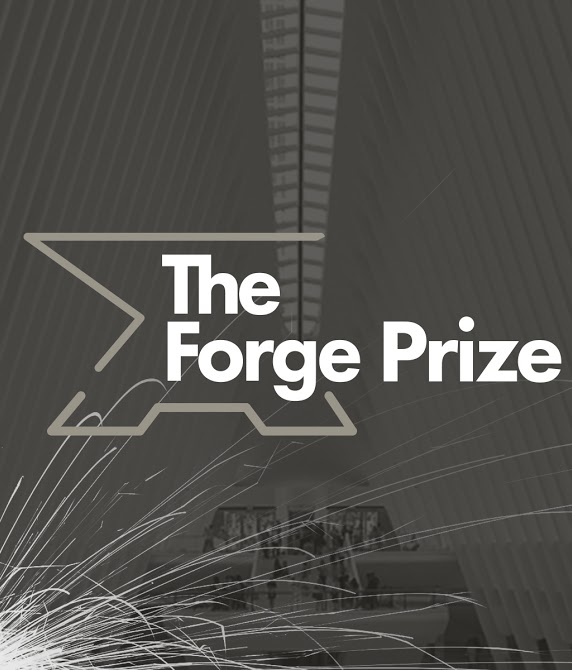 Established by the American Institute of Steel Construction (AISC), The Forge Prize recognizes innovation in the use of steel and how it can be used to reduce design and construction time.
Established by the American Institute of Steel Construction (AISC), The Forge Prize recognizes innovation in the use of steel and how it can be used to reduce design and construction time.
The two-stage design challenge will culminate in the selection of up to three Finalists in February 2020 (each will receive a $10,000 stipend) and the public announcement of a Grand Prize Winner ($20,000 total prize) in Spring 2020.
The competition is open to U.S.-based emerging architects who are either pursuing licensure or are licensed 10 years or less in the year 2020. Participants must be working professionals in any of the following firm types: architecture firm, AE firm (but submitting as an emerging architect), or design-build firm (but submitting as an emerging architect).
There is no cost to enter. The deadline for stage one submissions is January 15, 2020. Entry details at: www.forgeprize.com/about
Meet the 2019 Forge Prize winner and finalists
Looking for inspiration? Meet last year's winner and finalists:
WINNER: The 2019 Forge Prize Grand Prize Winner was Jin Young Song, AIA, Assistant Professor at University at Buffalo, and Founder of DIOINNO Architecture PLLC, for his SIMS (Snap-Interlock Module System) design concept. The design is pictured here (and above. All photos courtesy AISC.):
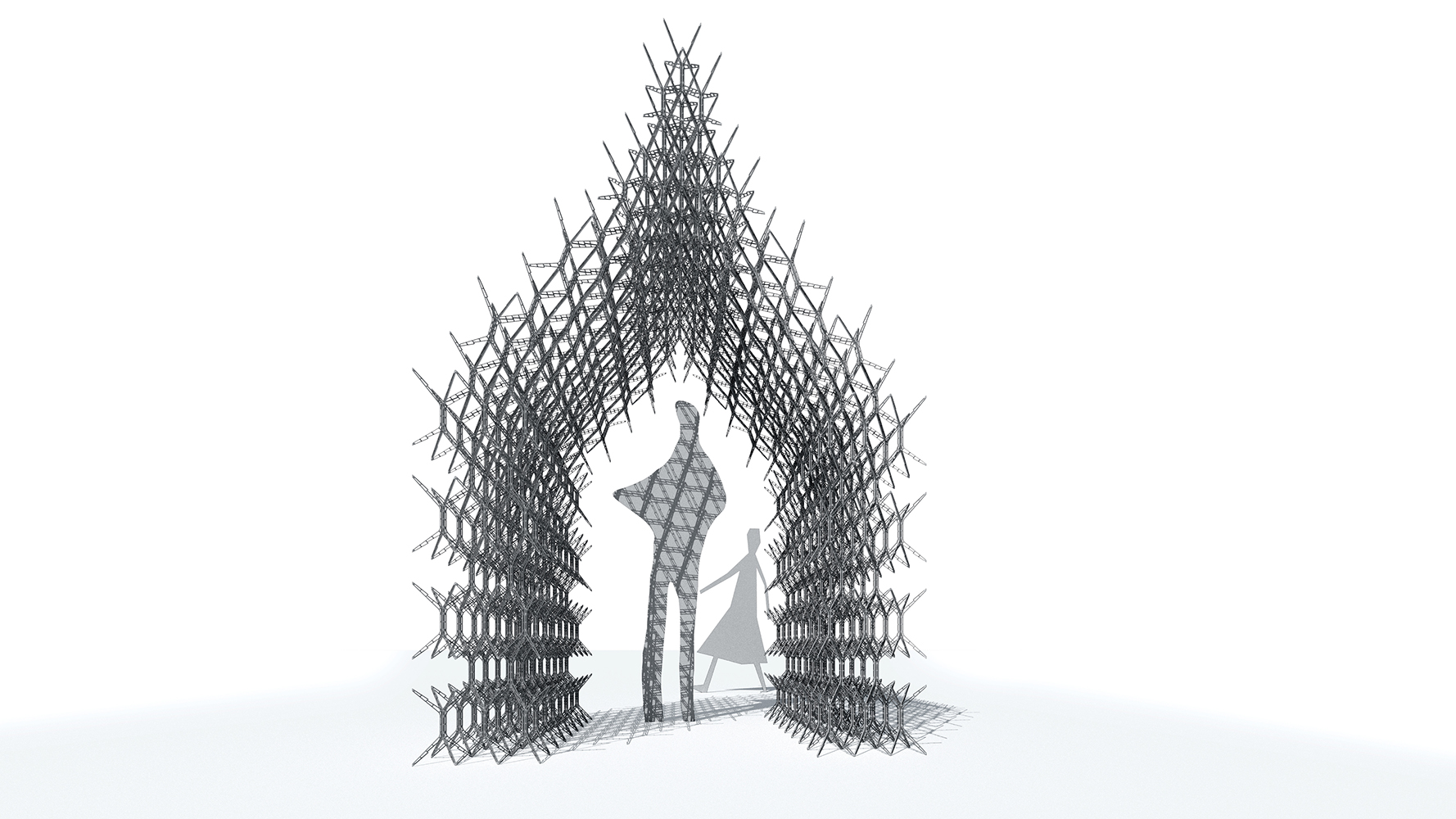
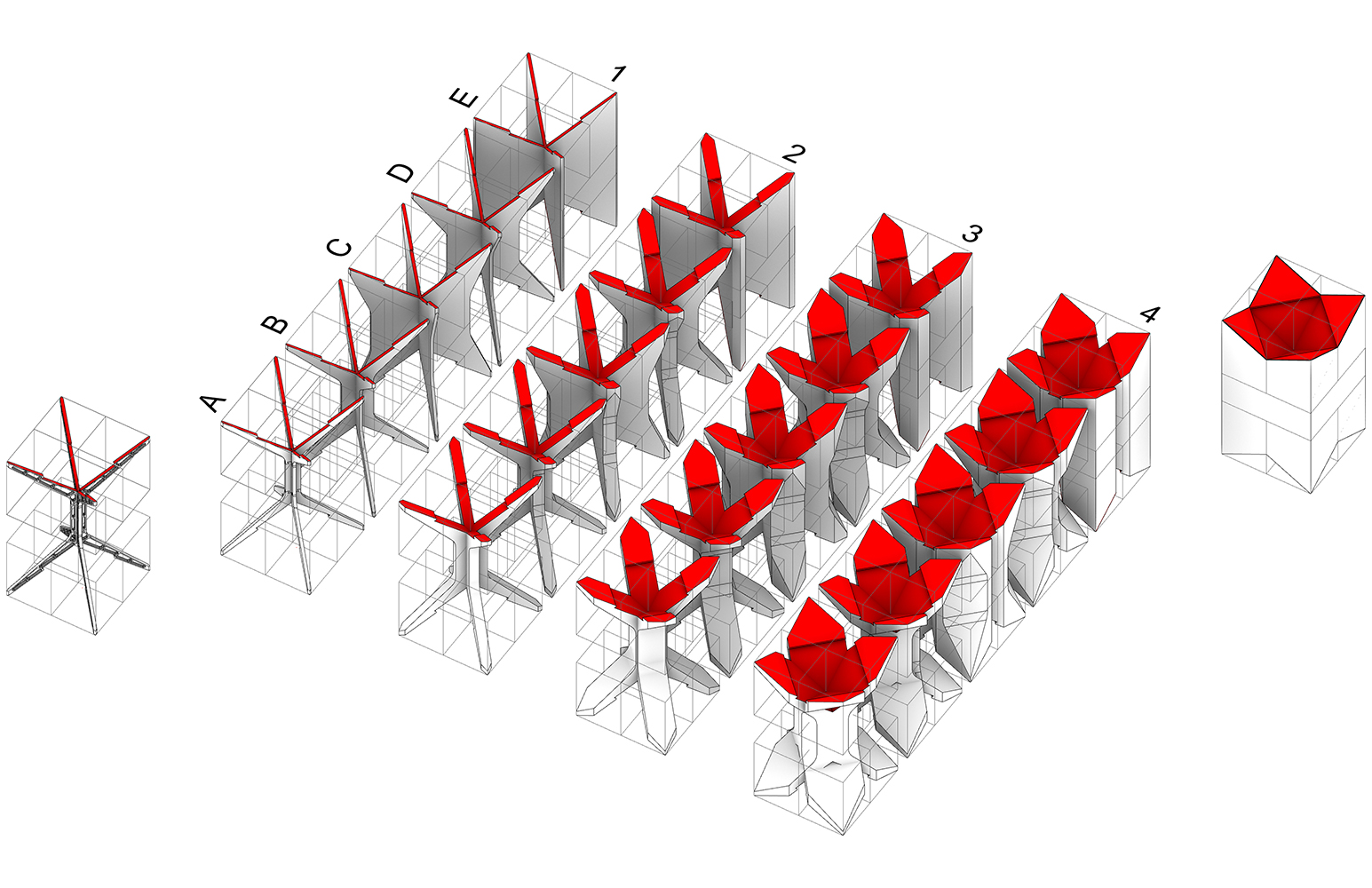
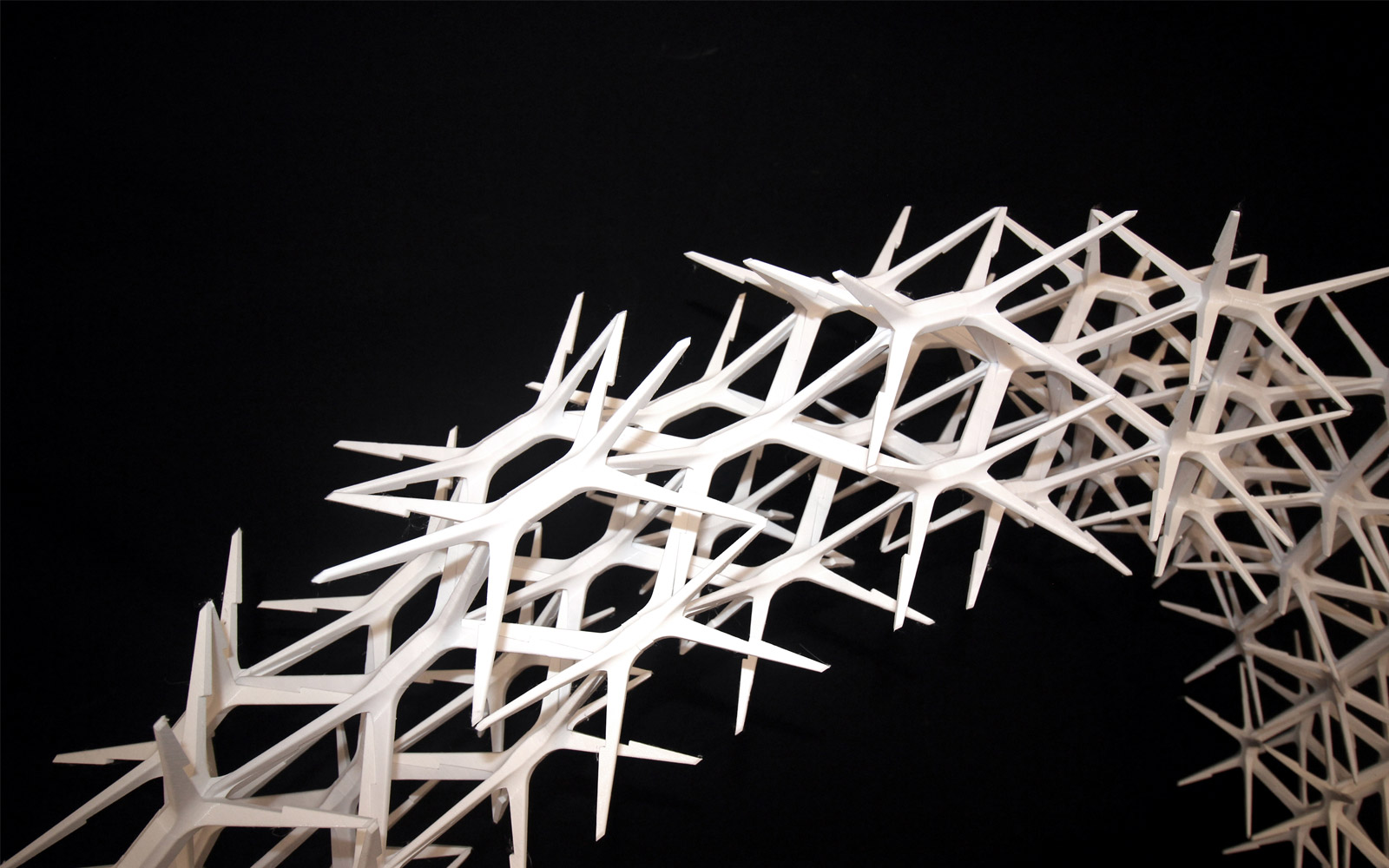
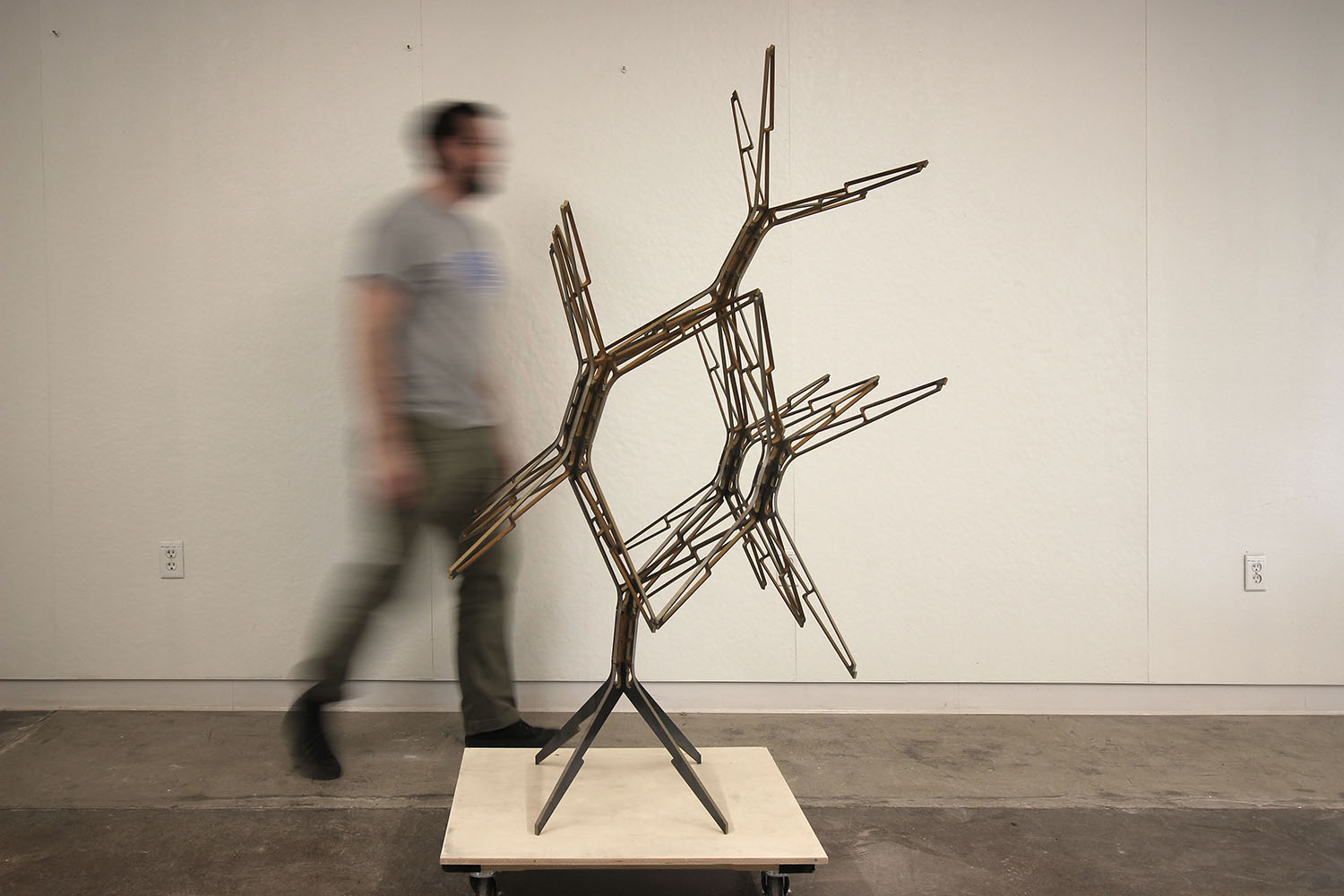
FINALIST: The 2019 Forge Prize Finalists included Valeria Rybyakova, Achitectural Designer with Perkins Eastman, for her submission "Responsive Enclosure for Public Pool," pictured here:
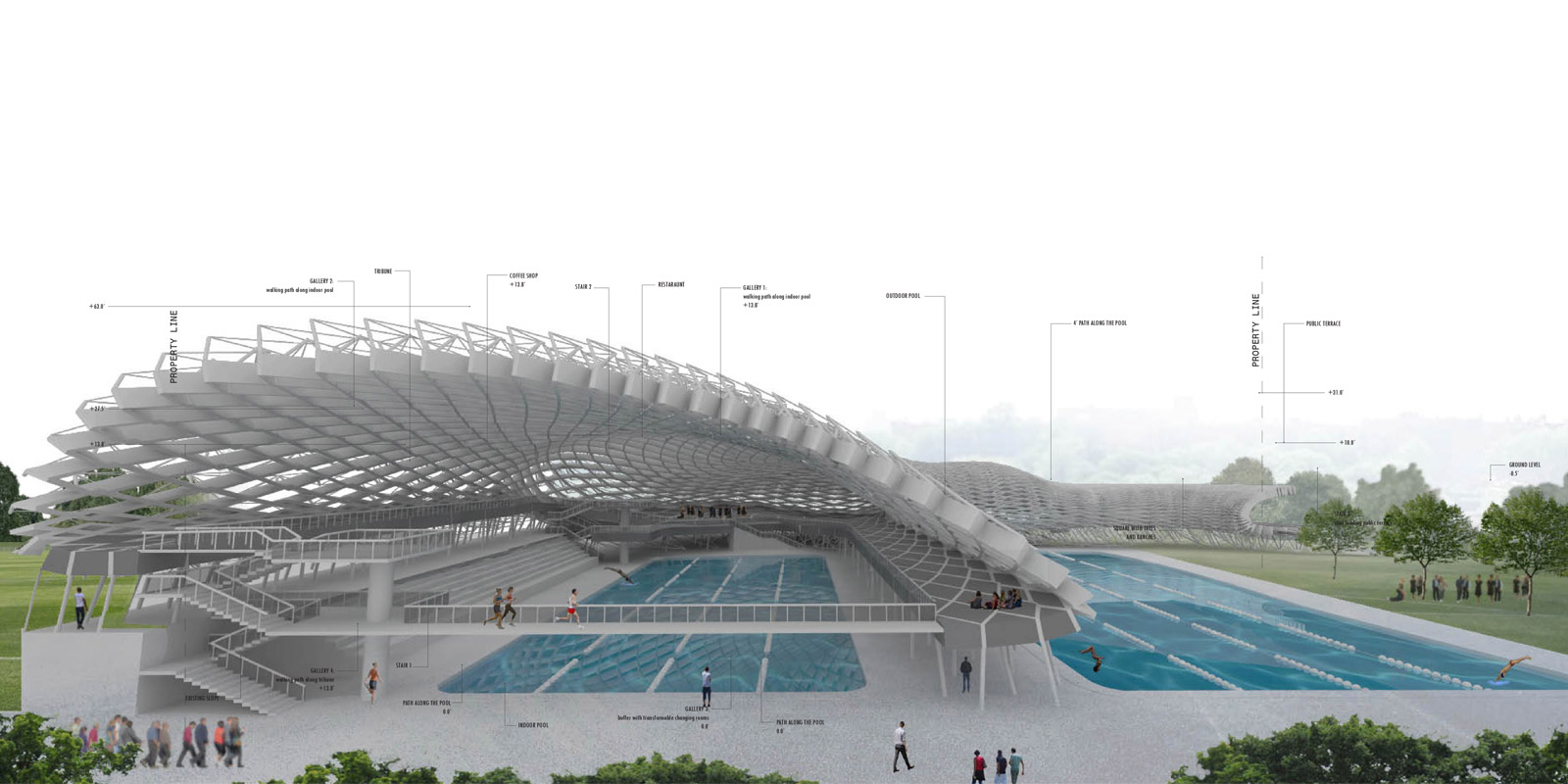
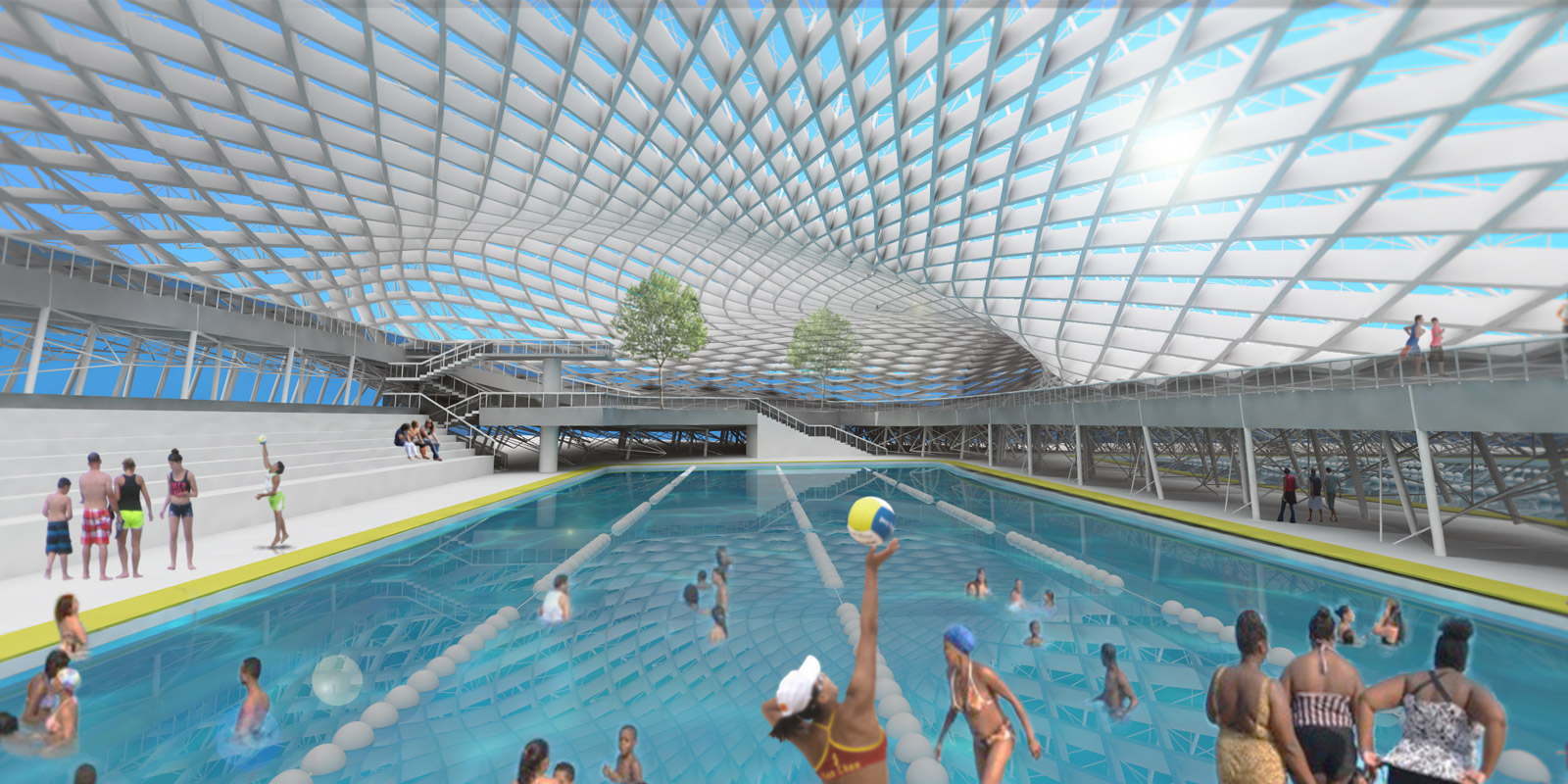
FINALIST: Jingyu Lee, PE, RA, LEED AP, Design Engineer, Magnusson Klemencic Associates, was named a Finalist for his design concept, "Reimagined Office Tower Using Cantilevered Trusses," pictured here:


Related Stories
| Nov 9, 2010
Designing a library? Don’t focus on books
How do you design a library when print books are no longer its core business? Turn them into massive study halls. That’s what designers did at the University of Amsterdam, where they transformed the existing 27,000-sf library into a study center—without any visible books. About 2,000 students visit the facility daily and encounter workspaces instead of stacks.
| Nov 9, 2010
Turner Construction report: Green buildings still on the agenda
Green buildings continue to be on the agenda for real estate owners, developers, and corporate owner-occupants, according to the Turner 2010 Green Building Market Barometer. Key findings: Almost 90% of respondents said it was extremely or very likely they would incorporate energy-efficiency improvements in their new construction or renovation project, and 60% expected to incorporate improvements to water efficiency, indoor environmental quality, and green materials.
| Nov 5, 2010
New Millennium’s Gary Heasley on BIM, LEED, and the nonresidential market
Gary Heasley, president of New Millennium Building Systems, Fort Wayne, Ind., and EVP of its parent company, Steel Dynamics, Inc., tells BD+C’s Robert Cassidy about the Steel Joist Manufacturer’s westward expansion, its push to create BIM tools for its products, LEED, and the outlook for the nonresidential construction market.
| Nov 3, 2010
First of three green labs opens at Iowa State University
Designed by ZGF Architects, in association with OPN Architects, the Biorenewable Research Laboratory on the Ames campus of Iowa State University is the first of three projects completed as part of the school’s Biorenewables Complex. The 71,800-sf LEED Gold project is one of three wings that will make up the 210,000-sf complex.
| Nov 3, 2010
Park’s green education center a lesson in sustainability
The new Cantigny Outdoor Education Center, located within the 500-acre Cantigny Park in Wheaton, Ill., earned LEED Silver. Designed by DLA Architects, the 3,100-sf multipurpose center will serve patrons of the park’s golf courses, museums, and display garden, one of the largest such gardens in the Midwest.
| Nov 3, 2010
Public works complex gets eco-friendly addition
The renovation and expansion of the public works operations facility in Wilmette, Ill., including a 5,000-sf addition that houses administrative and engineering offices, locker rooms, and a lunch room/meeting room, is seeking LEED Gold certification.
| Nov 3, 2010
Sailing center sets course for energy efficiency, sustainability
The Milwaukee (Wis.) Community Sailing Center’s new facility on Lake Michigan counts a geothermal heating and cooling system among its sustainable features. The facility was designed for the nonprofit instructional sailing organization with energy efficiency and low operating costs in mind.
| Nov 3, 2010
Seattle University’s expanded library trying for LEED Gold
Pfeiffer Partners Architects, in collaboration with Mithun Architects, programmed, planned, and designed the $55 million renovation and expansion of Lemieux Library and McGoldrick Learning Commons at Seattle University. The LEED-Gold-designed facility’s green features include daylighting, sustainable and recycled materials, and a rain garden.
| Nov 3, 2010
Recreation center targets student health, earns LEED Platinum
Not only is the student recreation center at the University of Arizona, Tucson, the hub of student life but its new 54,000-sf addition is also super-green, having recently attained LEED Platinum certification.
| Nov 3, 2010
New church in Connecticut will serve a growing congregation
Tocci Building Companies will start digging next June for the Black Rock Congregational Church in Fairfield, Conn. Designed by Wiles Architects, the 103,000-sf multiuse facility will feature a 900-person worship center with tiered stadium seating, a children’s worship center, a chapel, an auditorium, a gymnasium, educational space, administrative offices, commercial kitchen, and a welcome center with library and lounge.


